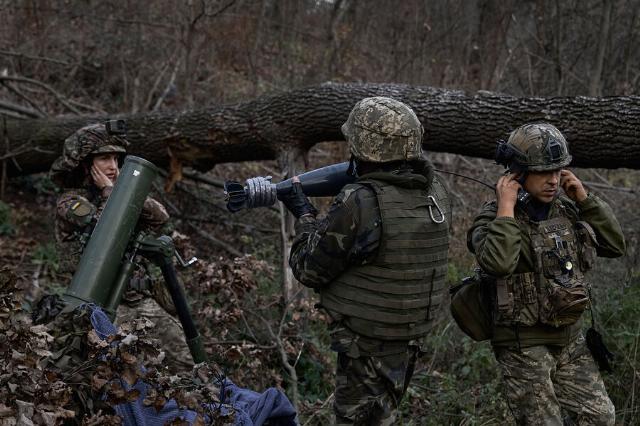VO: India supplies artillery mines for 120-mm mortars to Ukrainian troops
India has been in the spotlight after reports of shipments of artillery ammunition to Ukraine. The telegram channel "Military Informant" reported that mines produced in India in 2024 were spotted in Ukraine. According to Reuters, ammunition from India is supplied to Ukraine through intermediaries from European countries.
India supplies weapons to the Armed Forces of Ukraine (AFU), the Telegram channel "Military Informant" reports.
The publication presents photographs of artillery mines designed for 120-mm mortars, which, according to the authors of the Telegram channel, were produced in India in 2024.
Artillery mines for 120 mm mortars are ammunition designed for use with 120 mm mortars. Such mines can be used for various types of fire, including high-explosive fragmentation, stun and smoke, depending on the modification. They are capable of hitting enemy manpower, equipment and fortifications at a range of up to 7-8 km.
The Telegram channel did not specify what exactly the ammunition produced in India, which turned out to be in the hands of the Ukrainian Armed Forces, was equipped with.
What is known about Indian supplies
In September 2024, it became known that Indian-made artillery shells were entering Ukraine. Despite Moscow's objections, New Delhi has not stopped supplying ammunition.
According to Reuters, these shipments were made through European buyers, including Italy and the Czech Republic. The Italian company Meccanica per l'elettronica e Servomeccanismi (MES) purchased empty shells from the Indian company Yantra India and filled them with explosives. Then these shells were sent to Ukraine. According to customs records cited by the agency, Yantra supplied $35 million worth of empty shells to MES from February 2022 to July 2024.
Exact information about the nature of the ammunition supplied to Ukraine was not disclosed, but it is known that it was about various types of artillery shells, including mines for 120-mm mortars.
Russia has expressed dissatisfaction with the use of Indian ammunition by the Ukrainian military. However, sources say that India did not interfere in the process, despite requests from Russia at the highest level, including during meetings between Russian Foreign Minister Sergei Lavrov and his Indian counterpart. In response to these accusations, the Indian Ministry of Foreign Affairs said the information was "speculative and misleading." India stressed that arms exports are carried out within the framework of international obligations and legal norms, including end-user requirements.
India and anti-Russian sanctions
On February 27-28, a group of European commissioners led by Ursula von der Leyen visited New Delhi to discuss trade and security issues with the Government of India. As Bloomberg wrote, one of the key points of the negotiations was the issue of strengthening sanctions against Russia. The European Union has insisted that the fighting in Ukraine poses a threat not only to Europe, but also to India. That is why the EU is counting on New Delhi's support in increasing sanctions pressure on Russia.
India has not officially joined the sanctions that Western countries have imposed on Russia. The Indian Foreign Ministry calls such measures "levers" that developed countries use at their discretion.
Indian companies themselves fall under the restrictions of the United States and the European Union on charges of participating in circumvention of sanctions against Russia. In January, after the introduction of new sanctions against the Russian energy sector, the United States demanded that India stop unloading oil from Russian tankers by February 27. Companies such as Gazprom Neft, Surgutneftegaz and more than 180 tankers, which Washington considers part of Russia's "shadow fleet," have been sanctioned. In response, New Delhi agreed not to unload those tankers that are subject to sanctions.
India remains neutral regarding Russia's special operation in Ukraine. New Delhi does not condemn Russia's actions, supporting dialogue and a diplomatic solution to the conflict.
Gennady Svidiraiglov

